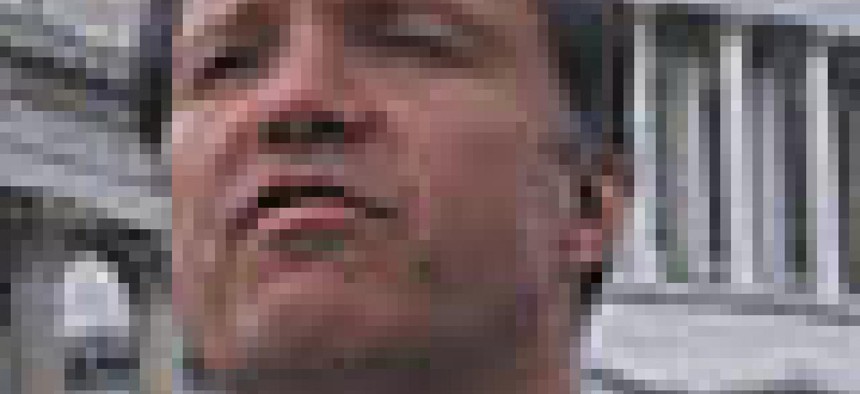Cox Report Stokes Export Control Debate

On May 25, a House select committee headed by Rep. Christopher Cox, R-Calif., released its report, "U.S. National Security and Military/Commercial Concerns with the People's Republic of China," on Chinese spying.
By David Silverberg, Contributing WriterOn May 25, a House select committee headed by Rep. Christopher Cox, R-Calif., released its report, "U.S. National Security and Military/Commercial Concerns with the People's Republic of China," on Chinese spying. The report is devastating, and the damage to U.S. defense has been considerable. But it is the fallout from the report, and the reactions it is triggering now and in the future, that should be of concern to the IT community.The report discloses that China has diverted civilian IT to its military purposes, and that high performance computers of 2,000 million theoretical operations per second (MTOPS) can be used for nuclear-related calculations. Since relaxing export controls in 1996, "sales of [high performance computers] between 2,000 and 7,000 MTOPS to [China] have burgeoned," as the report puts it. "Of computers not requiring licenses under ... 1996 regulations, 23 high performance computers in this performance range were exported in 1996 and 123 in 1997. An additional 434 high performance computers were to be exported in the first three quarters of 1998. Between 1994 and 1998, the U.S. government approved licenses for 23 high performance computers greater than 2,000 MTOPS."The report does not recommend a specific level of export control to prevent future leakage, and indeed it specifically states that it is in the national interest to encourage commercial computer exports to China. However, it does recommend that the United States make efforts to encourage other countries making high performance computers to adopt Americanlike policies toward China.This comes at a time when the computer industry is trying to lower the technology control barriers for computer exports. Indeed, breaking the government's 2,000 MTOPS export barrier is a stated goal of the Information Technology Industry Council's 1999 political agenda. When that agenda was unveiled in February, Dan Hoydysh, director of Unisys's Washington office, warned that with foreign competitors bringing on and freely exporting 2,000 MTOPS machines, the U.S. industry faced competitive disaster.After release of the Cox report, Hoydysh sounded beleaguered."All we can do is keep telling our story, which is that technology has moved forward at such a rapid pace that what was a high performance computer is today a desktop computer," he told in a telephone interview. In 1997, 60,000 computers were sold in China, 20,000 of which were from non-U.S. sources, none of which were over 2,000 MTOPS, Hoydysh said. By next year, he predicted, the same class of machines will exceed 2,000 MTOPS, and foreign manufacturers will be selling 60,000 of those. "We're talking about a low-end computer here. Unilateral control will just weaken the U.S. computer industry, and that is not in the U.S. national interest," Hoydysh said.Whether Hoydysh and other computer makers can limit the fury of Congress and the natural inclination to slap on tighter controls remains to be seen. They will have to make sure that the concern over national security ? as well as any new export controls ? is channeled narrowly against China and not against the world at large.One thing worth remembering is that the debate over what technology the United States should allow out to the rest of the world has been going on since World War II. In that entire time, the United States has remained the world's technology leader, particularly in military and IT systems. In times of tension, technology control has been tight, in times of relative peace, it has been lax. The detente of the early 1970s meant a flow of technology to the Soviet Union; the election of President Reagan in 1980 changed that policy.It is the historic pattern in the technology control debate that whenever controls were about to loosen significantly, some egregious breach of national security was brought to light and the controls were reimposed. This occurred in 1987 when diversion of sophisticated machine tool technology by the Toshiba company and a Norwegian firm called Kongsberg to the Soviet Union was revealed. The diversion brought an abrupt halt to a then-growing movement to loosen export controls.If technology export controls tighten, it looks as though it will be on hardware, not software. Cox himself is a supporter of the SAFE Act, which would loosen export controls on encryption technology. Writing in the , his hometown newspaper, Cox argued: "Encouraging exports to China that promote individual freedom and well-being is in the United States' national security interest. For this reason, in addition to allowing the export of encryption software, U.S. policy should focus on unleashing the Internet as an engine of freedom in China." Cox believes that if every Chinese citizen had encryption software, it would break the government's control of information.However, if traditional patterns hold, there will be new sentiment in government to try to control all exports, especially to Asia. And forget about exporting so much as a keyboard to China.

Washington Technology
San Jose Mercury News

Rep. Christopher Cox
Washington Technology
San Jose Mercury News
NEXT STORY: Capital Roundup